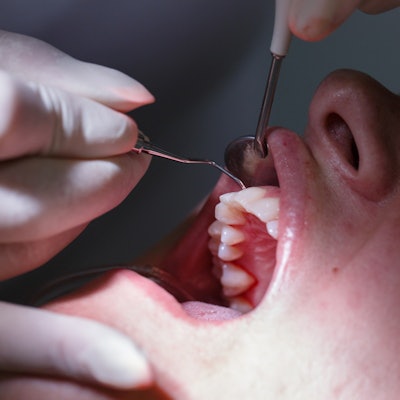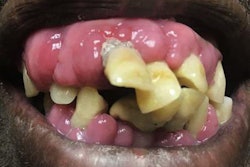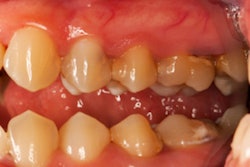
Proton pump inhibitors (PPIs) taken for acid-related gastrointestinal conditions such as heartburn may cut the severity of periodontal disease, according to a study published on September 21 in Clinical and Experimental Dental Research.
The use of PPIs appeared to be associated with fewer elevated probing depths in nonsmokers who did not have diabetes or other systemic conditions, the researchers found. With further studies, PPIs may hold potential as an adjunct in periodontal therapy, they added.
"The results suggest that fewer teeth with elevated probing depths occur among patients using PPIs, compared to patients not using PPIs, thus supporting the hypothesis of an association between PPI and periodontal disease," wrote the group, led by Dr. Lisa Yerke from the department of periodontics and endodontics at the University at Buffalo School of Dental Medicine.
In the U.S., proton pump inhibitors are among the 10 most frequently prescribed medications, the authors noted. PPIs are used to treat conditions including acid reflux, gastroesophageal reflux disease (GERD), peptic ulcers, and Barrett esophagus.
These medications can change the gut microbiome and affect bone; also, the etiology and pathogenesis of periodontitis are altered by bacteria within the periodontal pocket. Therefore, the researchers speculated that proton pump inhibitors may affect the development of gum disease.
To assess the relationship between PPIs and periodontal disease, the researchers used health records from approximately 650 patients. Yerke and colleagues compared the proportion of elevated probing depths between people who took proton pump inhibitors and those who did not. The patients included in the analysis did not smoke or have diabetes or other systemic conditions such as nonthyroid autoimmune disease. The proportion of elevated probing depths was used to measure periodontitis severity.
Of the patients, 28 used proton pump inhibitors and 621 did not. Those who did not use PPIs had a higher percentage of teeth with probing depths of at least 5 mm and 6 mm, the authors wrote.
| Periodontal pocket depth in PPI nonusers vs. users | ||
| Probing depth | Percentage of teeth in PPI nonusers | Percentage of teeth in PPI users |
| ≥ 5 mm | 40% | 27% |
| ≥ 6 mm | 24% | 14% |
The study was limited by its retrospective design, including a lack of data regarding PPI dosage and the use of self-reported patient medication information, the authors wrote.
To better characterize the role of proton pump inhibitors in the pathogenesis of periodontal disease, the researchers have planned or begun prospective cohort studies, randomized clinical trials, and animal studies in their lab, they noted.
"Potentially, nonsurgical periodontal therapy in conjunction with short-term use of PPIs might be considered as future adjunctive therapy in a manner similar to the use of NSAIDs [nonsteroidal anti-inflammatory drugs] and local antimicrobial delivery," Yerke and colleagues wrote.




















